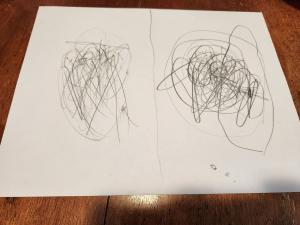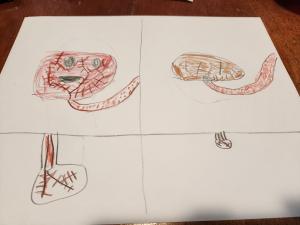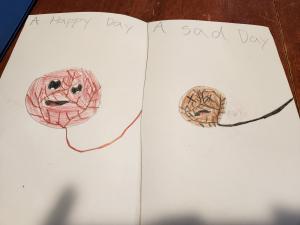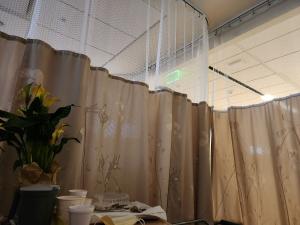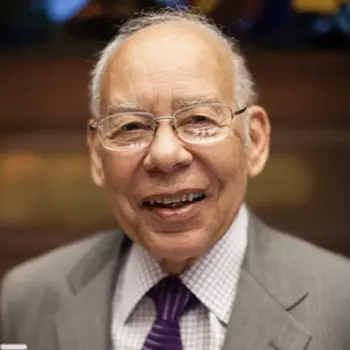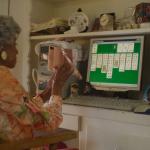I glanced at my phone. It was 11:48pm on December 31, 2022. I ambled slowly across the tile floor, pushing my IV towards the nearest bathroom, my gown trembling about me. All but one of the lights over the nurses’ station had been turned off and it was quiet and peaceful, much as it had been at 6am when a nurse had wheeled me up from the ER and into an unoccupied space and drew the curtain. There was no indication that this night was different from any other night.
I emerged from the bathroom to shuffle back to my bed. Passing the desk, I nodded to Paul, my overnight nurse. It was past midnight. Hello, 2023!
***
How we respond to suffering and pain provides insight into human nature, as well as the opportunity to witness to others, and have God witness to us. Christians believe suffering entered the world at the sin of our first parents, though our various traditions relate differently to suffering. As a Catholic, I believe that my suffering unites me to Christ, cleanses me of my sins, can atone for the sins of others, and brings grace into the world. If humbly accepted, suffering can even bring joy, for it makes us more like Christ. St. Paul recognized that his suffering fed the Body of Christ: “I rejoice in my sufferings for your sake, and fill up on my part that which is lacking in the afflictions of Christ in my flesh for his sake, which is the church” (Col. 1:24).
I’d like to share some observations about my illness and hospital stay, musings about God manifesting among us. I was in and out of pain and on heavy narcotics, so my thoughts may reflect that.
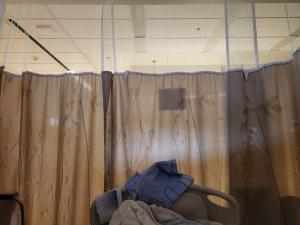
My view as 2022 transitioned into 2023
***
My symptoms came on so slowly, I don’t really know when I first became ill. About two years ago I bled off-cycle, presumably from stress at work given that a visit to Urgent Care revealed nothing alarming. Soon after, my cycles became heavier and longer. I assumed that like my grandmother, mother, and sister, I was entering menopause early. My sister-in-law, who is 12 years older, said that her cycles became heavy before they stopped. Nothing seemed amiss.
Fast forward to Fall 2022, when I began feeling intermittent pain, run down, short of breath, confused, dizzy, easily overwhelmed, and incapable of complex thought. I thought my GI issues were to blame, but my GI doctor could not help me. Finally, on a month that I bled 21 consecutive days, I saw my gynecologist, who ordered an ultrasound and found the culprits: uterine fibroids (non-cancerous tumors) of various sizes that had been growing inside me for 3-4 years(!). She recommended a hysterectomy. I was sitting next to my husband at a dining table in South Lake Tahoe two days before our 10th anniversary when she delivered this news via Zoom; only by grabbing his hand under the table did I manage not to cry until the call ended.
A few days later, while in Palm Desert on the second leg of our family anniversary trip, my gynecologist called back to put me on bed rest and iron supplements, given that my hemoglobin levels had dropped so low from a year of prolonged and heavy bleeding that I was dangerously anemic. This was why I felt outside of myself, out of control, anxious, and paranoid! The news united me across time and space with women from the past who had been diagnosed with hysteria, Greek for “wandering womb,” since – like mine – the normally fist-sized uterus had become enlarged, extending upward, an empty pregnancy. These historical women, often seen as mad, were subjected to medical treatments and religious rituals to “move” the uterus back in place. In truth, these women probably had fibroids and anemia. Once I have recovered, I want to learn more about these women.
Did I have my hysterectomy? No. After much prayer, discernment, and consultations with specialists, we opted for a Uterine Fibroid Embolization, an outpatient procedure that blocks blood supply to the fibroids while sparing the uterus. Given that Interventional Radiologists usually do UFE, divine intervention, or so it seems, led us to the gynecologist who pioneered UFE in the U.S., and who could fit me in on December 29. (If you’re curious, this Australian website has a 3-minute UFE simulation).
My children’s visualization of my uterine fibroids pre- and post-UFE (ages 5, 7, and 9)
How did I end up in a hospital bathroom as the clock struck 12 on New Year’s Eve? My husband and I could not manage my post-procedure pain at home so we went to the ER, which also had trouble managing my pain, despite using heavy narcotics. Indeed, it took several days in the hospital to bring my level-10 pain under control. Because of the setup of beds side by side separated only by curtains, I could hear everyone’s conversations and learned the maladies of my neighbors, though I never saw their faces. I knew their stories, I heard their suffering, though we never spoke. I felt God manifesting himself to me during my stay, and I’d like to share the experience.
The morning I arrived there was a disconnect between the ER doctor and the admitting doctor, so I went 7 hours without pain meds with level-10 pain. I wept in my bed as the nurses brought me heat packs, rubbed my arms, apologized, and called the doctor repeatedly. In my delirium, I became aware of the new mom beside me with a milk duct issue who pumped milk every few hours and asked politely for it to be stored. In those hours of my deepest pain, her calm and reassuring voice anchored me. What a powerful lesson of how our demeanor affects others, and how even if we are not aware of it, we can encourage with our very presence. We can be Christ to others.
I woke to a male voice on the phone, sharing with friends that his cancer had not returned. He made call after call, rejoicing, and I rejoiced with him. He had been there 5 days and was anxious to be home before the new year. Suddenly, I heard a curtain being pulled roughly aside and a young male voice state flatly, “So it looks like you have cancer.” I could feel my neighbor cringe, just as I was cringing in my bed. What a total lack of empathy! We do not always realize the power of our words. It was a reminder to take care in how we speak, especially to those who are vulnerable or whom we supervise, like our students, like our children.
In the evening, nurses wheeled in a young man with a deep voice, but who must have been young because he had his parents in tow. Through the curtain I glimpsed dark, curly hair, much like my oldest son. The resemblance ended there. When nurses wheeled in an elderly woman who was not ambulatory, they gave her a portable commode. When she used it, the young man began shouting about how disgusting it was and how could he be expected to be somewhere so disgusting. His mother did not chide or quiet him. Moments later when the woman began snoring, he started shouting about how would he ever be able to sleep. Then he told his mom that between the snoring and the lady who cried all the time (he meant me!), he’d never be able to sleep; then he started imitating my cries of pain. To my surprise, his mother began laughing and making fun of patients along with him! What a good reminder that our behavior as parents and mentors, models and shapes the people our children and students become. I thought of Francis, and how in the early days of his conversion after his life of revelry in Assisi, he embraced a leper on the road, grateful to be near someone who was suffering, as Christ suffered. If only we had such faith.
When one does not have a reason to suffer, it can seem pointless, making us irritable, unkind, angry, and demanding. Who volunteers to suffer? Who relishes pain?
The martyrs. St. Lawrence, while being grilled alive, famously asked to be turned over because he was well done on that side. St. Thomas More good-naturedly requested that the executioner make a clean cut on the correct part of his neck. St. Mark Ji Tianxiang, an opium addict martyred in the Boxer Rebellion, asked to be killed last so that none of his family would have to die alone, then went to his death singing. St. Maximilian Kolbe, a Franciscan priest, requested to die in place of a family man at Auschwitz, then ministered to the other condemned souls and had them all singing as they died.
As Christians, we believe in a God who became man in order to suffer and redeem us with his blood, so that we might reach heaven, where there is no suffering. Suffering here on earth is a small sacrifice for the wonderful gift of redemption, brought to us by a tiny child whose birth we celebrated just three weeks ago.
St. Faustina, an early twentieth-century Polish nun, had visions of Christ, who revealed that if the angels were capable of envy, they would envy us for suffering.
What an incredible thought.


